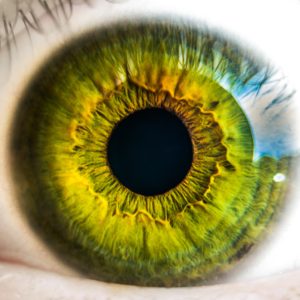
These Retina Specialists manage medical and surgical diseases of the retina, a light-sensitive tissue lining the inner back wall of the eye.
An ophthalmologist is a physician and surgeon trained to manage diseases of the eye. Many of us are familiar with ophthalmologists as they perform cataract surgeries. There are also ophthalmologists who choose to subspecialize in the field of Retina. These Retina Specialists manage medical and surgical diseases of the retina, a light-sensitive tissue lining the inner back wall of the eye. They specialize in conditions such as Macular Degeneration, Diabetic Retinopathy, and retinal arterial occlusions. They also specialize in surgical repair of the retina such as in retinal detachments and macular holes.
In the U.S., Diabetic Retinopathy is the leading cause of blindness in adults. About 40-45% of adults with diabetes over the age of 40 will have some level of Diabetic Retinopathy. With the current epidemic of Diabetes, it’s important to understand the potential impact on the retina and ultimately, a person’s sight.
The retina is the light-sensitive tissue that lines the back of the eye. It captures light entering the eye and transforms it into electrical signals. These signals travel through the optic nerve and are interpreted by the brain. Within the retina lies a rich supply of blood vessels that are susceptible to damage from high glucose levels. Over time, this damage may result in leaky blood vessels that cause retinal swelling and result in blurry vision. Sometimes the blood vessels close off completely, starving the retina of oxygen. The damaged retina will then release growth factors to stimulate the growth of new blood vessels. Unfortunately, these new vessels are fragile, leaky and often rupture, bleeding inside the eye. They may also result in scar tissue formation that contracts, pulling the retina off the back of the eye (retinal detachment). These changes constitute varying levels of Diabetic Retinopathy.
Today Retina Specialists use multiple methods to manage Diabetic Retinopathy. For many patients, eye injections of medications that stop the production of growth factors work well. Sometimes a laser is used to target leaky blood vessels
or destroy a dysfunctional retina. Patients with more advanced Diabetic Retinopathy may require surgery to remove blood or scar tissue inside the eye.
The key to avoiding these problems is maintaining regular visits with a physician to ensure adequate blood sugar and blood pressure control. A healthy diet, regular physical activity, and weight management play crucial roles as well. Smoking should be avoided at all costs. Regular screening or follow-up visits with an ophthalmologist or Retina Specialist are important in preventing vision loss. With a direct view of the retina’s health, your eye care specialist and you can work together to preserve your vision.
Article Provided by:
Oregon Retina Center
541-770-2020
www.OregonRetina.com
Search Retirement Connection Listings for Residential Care Facilities
Search Residential Care Facilities for Grants Pass
Search Residential Care Facilities for Klamath Falls
Search Residential Care Facilities for Medford
Search Residential Care Facilities for Roseburg
